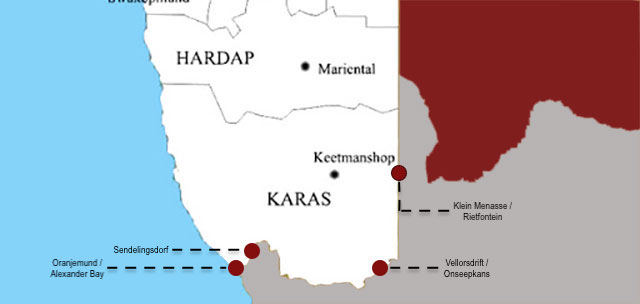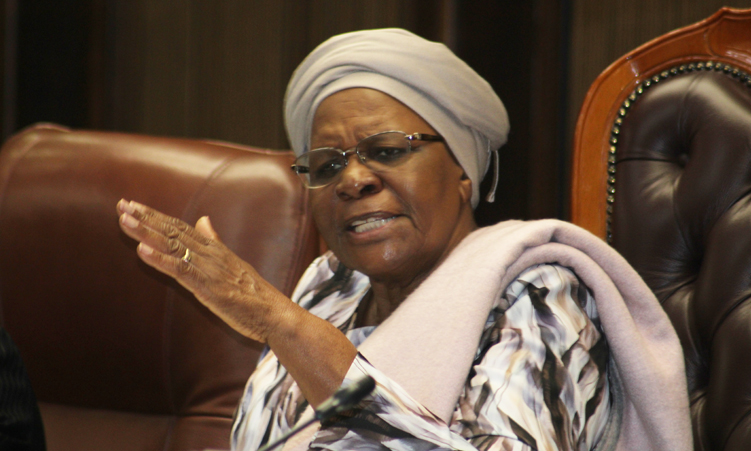THE South African health ministry will be closing four border posts with Namibia that are not mainly used for importation of goods to the country to minimise the spread of the coronavirus.
In an announcement released at the weekend, South African president Cyril Ramaphosa said they would be closing two-thirds of their border posts, and two out of eight sea ports will not be accepting passengers or vessel crews.
The ministry yesterday announced that for Namibia, they would be closing the Alexanderbay, Onseepkans, Rietfontein and Sendelingsdrift border posts.
South Africa will also be closing Mosselbay and Saldanha seaports.
The listed land borders are mainly used as people exit points except the Alexander Bay post, which is used to transport manganese to Lüderitz. The closure of this border would mean TransNamib’s Aus-Lüderitz rail which was revived last year after 20 years of no commercial use, will not be used for a while.
Namibian imports from South Africa normally come through the Ariamsvlei, Noordoewer and Trans Kalahari border posts which handled over N$3,7 billion, N$3 billion and N$4,8 billion of imports in 2018, respectively. These border posts remain open, for people and goods.
The South African ministry said OR Tambo in Johannesburg, Cape Town International and King Shaka airports in Durban will all remain open.
Some goods also come to Namibia by plane from these airports .
In 2018, the Eros and Hosea Kutako International Airports handled over N$20 billion worth of goods from all over the world into Namibia.
Some border posts with Lesotho, Eswatini, Mozambique, Zimbabwe and Botswana have also been affected by the ban.
The International Monetary Fund (IMF) said the coronavirus wiped out at least US$50 billion of global exports in February alone.
At an IMF and United Nations joint meeting early this month, Pamela Coke-Hamilton, who heads the UN Conference on Trade and Development division said developing countries would be badly hit.
For developing economies that are reliant on exporting raw materials, the effects could be felt “very, very intensely”, she added.
“Assuming that it is not mitigated in the short-term, it is likely that the overall impact on the global economy is going to be significant in terms of a negative downturn,” she said.
She added that ultimately, the economic impact of this virus depends on the measures that countries apply to contain its spread.
“So, China has done a great job in containing the virus, but it has sacrificed a little bit of the economy, at least in the first few weeks. So, planned closures, restriction to movement of people, which were all necessary; but there is an economic effect when you take those measures,” she cautioned.
Email: lazarus@namibian.com.na
Twitter: @Lasarus_A
Stay informed with The Namibian – your source for credible journalism. Get in-depth reporting and opinions for
only N$85 a month. Invest in journalism, invest in democracy –
Subscribe Now!










